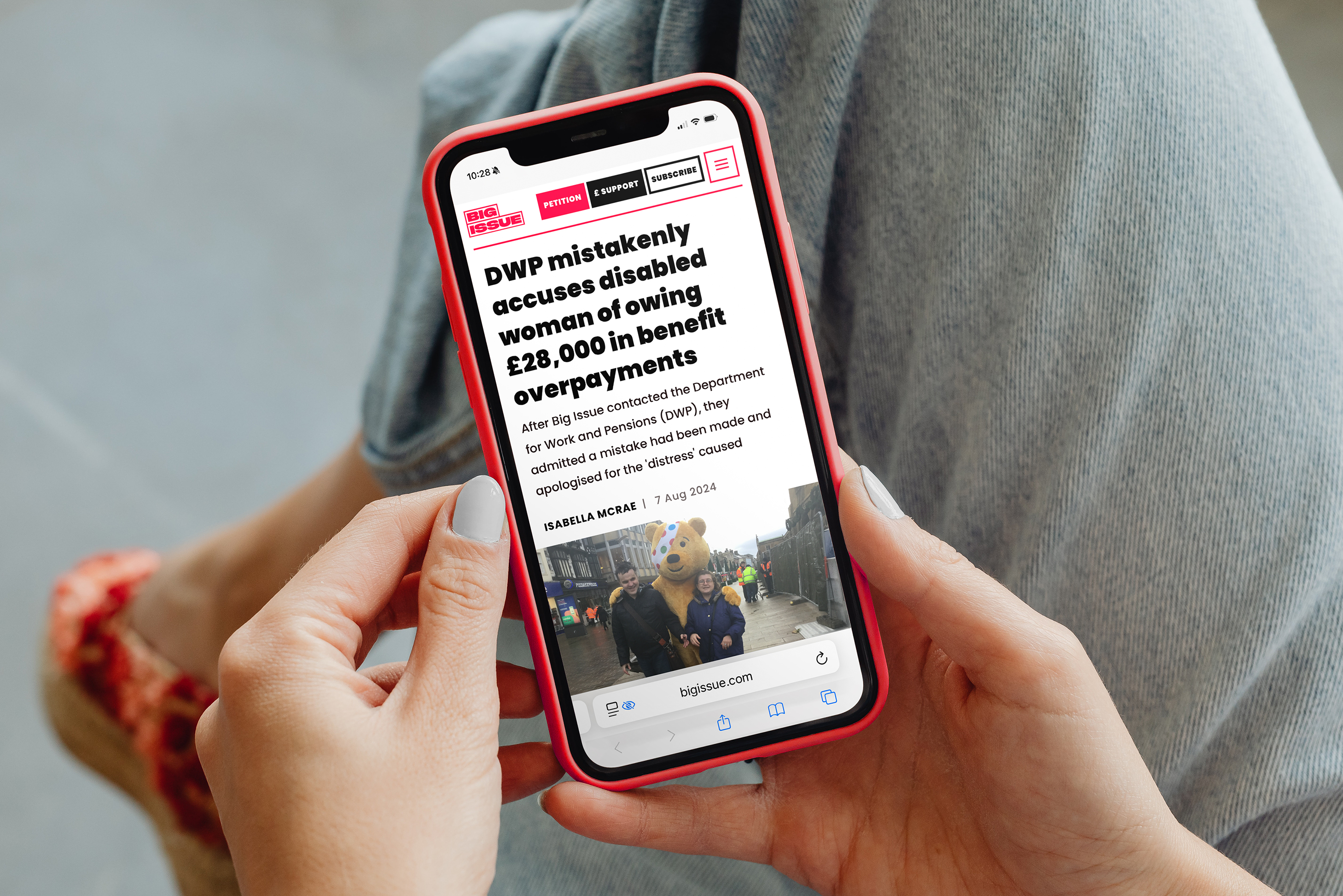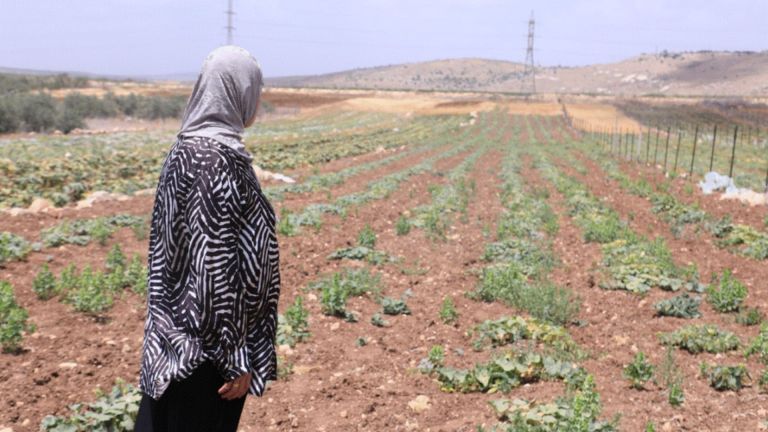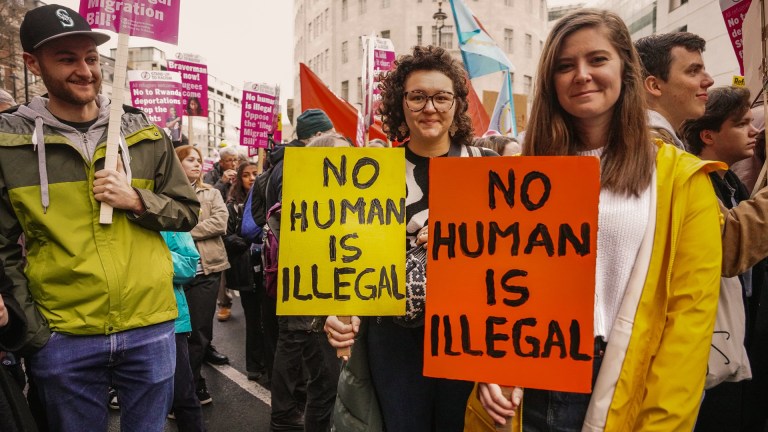“The phone call then lasted no more than 10 minutes. They didn’t understand why I had to appeal, as I had given enough evidence, and I was awarded higher in both [the daily living and mobility categories] for PIP,” she said.
She added that it can be “hard to gather and get together all the evidence letters I need to copy and send off” for her application, as her “debilitating” conditions are long-term, meaning she has many different doctors and hospitals she visits.
“I sometimes have to request recent medical copies, as PIP needs as recent as possible letters. This takes a lot of time, and sometimes I’ve only got a small timeframe to do so, as they don’t always give you enough time to send your renewal form back,” she explained. “I’ve also had to appeal every single time I’ve had got a PIP result, which again is very stressful.”
PIP helps to cover various costs related to Thomas’ conditions, including transport to hospital appointments, “particularly taxis, which are often not covered by NHS transport allowance unless specifically permitted by a doctor. It also enables me to visit family, as my disabilities prevent me from driving.”
She added that: “PIP contributes to the purchase of walking aids like new walking sticks and covers disability-related benefits such as a Disabled Persons Railcard. Crucially, it assists with general living expenses like bills and heating, and allows me to get essential items like food, clothes, toiletries, medication, and even takeaways delivered on days when my conditions flare up severely.”
Thomas told Big Issue that she is “very concerned” about how any changes to PIP could impact her financially, as she wouldn’t be able to rely on her family for financial support, and “might even have to move out of my current housing, as my other benefits would not cover living costs”. For Thomas, working full-time is not possible, as the volunteering she does two days per week is “all I can manage right now”.
Advertising helps fund Big Issue’s mission to end poverty
She explained that being able to volunteer for Sue Ryder and Pilgrims Hospice has had a “significant positive impact on my mental health“, and both workplaces have been “incredibly accommodating in adapting to my needs”.
While Thomas has concerns about Labour’s proposals to cut PIP – the government introduced proposals in March to change who may be eligible to receive PIP, which could have meant 1.3 million people with disabilities and long-term conditions missing out on their benefits – these plans have since been shelved.
During a vote on 1 July, the proposed cuts were postponed until the government can carry out a review of the assessment process, led by disability minister Stephen Timms, alongside disabled people and the organisations which represent them.
MPs had already limited any reforms to new claimants, rather than existing ones. This means the future of the changes to PIP are slightly more uncertain, and the cuts may not go ahead at all.
Thomas explained that she believes Labour’s original proposals were “awful”, and they “suggest that the government does not prioritise the needs of individuals with disabilities or mental health conditions”, but that even if the proposals are permanently shelved, the whole system needs improvement, adding that the wait times for reassessments and appeals are “diabolical”.
“It seems their focus is solely on unemployment rates and saving money,” Thomas said. “While they advocate for more disabled people to return to work, they are simultaneously considering getting rid of Access to Work, which is a vital system that helps disabled individuals secure employment. Without this system, those who require adaptations like specialist equipment, ramps, or interpreters would be at a significant disadvantage, potentially increasing unemployment rates and pushing disabled people further into poverty.”
Advertising helps fund Big Issue’s mission to end poverty
She added that instead of cuts, the government should “continue investing in programs that support disabled people in finding and retaining employment, helping workplaces make necessary adjustments, and supporting employers who hire individuals with disabilities”.
“I strongly feel that the entire application and reassessment process is in dire need of improvement,” she added. “It is disheartening that genuinely disabled individuals and those already experiencing poverty are the ones who suffer from the government’s current proposals. Instead of making life harder for innocent disabled people, I believe the focus should be on addressing those who are genuinely defrauding the benefit system.”
“There needs to be a huge improvement for the system to work effectively,” she explained, adding that she hoped, “sharing my experience can be helpful for others facing similar challenges”.
For more information about applying for PIP, there are guides to how to apply and what to expect from your assessment.
Big Issue has contacted the DWP for comment.
Do you have a story to tell or opinions to share about this? Get in touch and tell us more.
Advertising helps fund Big Issue’s mission to end poverty
It’s helping people with disabilities.
It’s creating safer living conditions for renters.
It’s getting answers for the most vulnerable.
Big Issue brings you trustworthy journalism that drives real change.
If this article gave you something to think about, help us keep doing this work from £5 a month.









